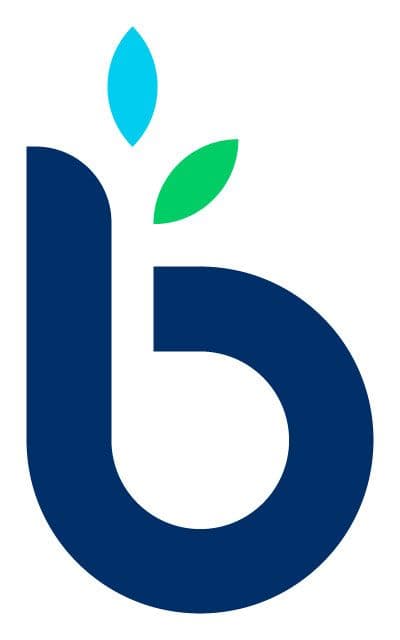Whether you run a small startup or a medium-sized enterprise, at some point you might need financing in the form of business loans–meaning you’ll need to go through the process of researching and applying for the right product. But before you take on any debt, it’s important to understand what a business loan is and how it can impact your business.
Business Loans: Meaning and Purpose
A business loan is a form of financing where a lender provides a specified amount of capital to a business. The business then repays this capital with interest over a set period of time. The purpose of a business loan is to provide businesses with the funds they need to grow, manage operations, or address other financial obligations.
Business owners can get loans from traditional banks, credit unions, online lenders, or other types of lenders. The primary goal of a business loan is to bridge the gap between what a business currently has in its reserves and what it needs to cover expenses, expand operations, or invest in new opportunities.
However, business loans come with terms, conditions, and qualifications that entrepreneurs must understand before they move forward.
Types of Business Loans
There are several types of business loans, each designed to address different needs. Before taking out a loan, you should carefully review the different options to ensure the loan you select is the right fit for your business.
Term Loans
One of the most common forms of business loans is the term loan. In this arrangement, a business borrows a lump sum of money and agrees to repay it over a specified period, often with fixed monthly payments.
Term loans can be short-term, typically lasting up to a year, or long-term, with repayment terms of several years. These loans can be used for various purposes, including purchasing equipment, expanding operations, or covering operational costs.
Term loans are popular because they offer a predictable repayment schedule and are often available at fixed interest rates, making it easier for businesses to plan their budgets. However, lenders typically require collateral for larger loans, and the approval process may be time-consuming and require detailed financial documentation.
Lines of Credit
A business line of credit works similarly to a credit card. It provides a revolving credit limit that businesses can draw from as needed. The business only pays interest on the amount used, not the total credit limit, making it a flexible option for managing short-term expenses or cash flow. Once the borrowed amount is repaid, the credit becomes available for use again.
Lines of credit are particularly useful for covering unexpected expenses or seasonal fluctuations in revenue. For example, a retail business might use a line of credit to purchase inventory ahead of the busy holiday season and then repay the loan once sales pick up.
However, interest rates on lines of credit tend to be higher than those for other types of loans, and some lenders charge maintenance fees for keeping the credit line open.
Equipment Financing
Equipment financing is a type of loan specifically designed for purchasing business-related equipment, such as machinery, vehicles, or technology. In this case, the equipment being purchased serves as collateral for the loan. If the business defaults on the loan, the lender can seize the equipment to recover its losses.
This type of loan is ideal for businesses that need to make significant equipment purchases but want to avoid depleting their working capital. Equipment financing may come with lower interest rates because the loan is secured by the equipment. However, the borrower is responsible for maintaining the equipment and may still be liable for the loan if the equipment becomes obsolete or damaged before the loan is repaid.
SBA Loans
Loans guaranteed by the U.S. Small Business Administration (SBA) are among the most popular financing options for small and medium businesses. SBA loans are partially backed by the federal government, which reduces the risk for lenders and allows them to offer more favorable terms to borrowers. Common types of SBA loans include the SBA 7(a) loan and the SBA 504 loan.
SBA 7(a) loans are versatile and can be used for a wide range of business purposes, including working capital, purchasing equipment, or buying real estate. SBA 504 loans, on the other hand, are specifically designed for purchasing fixed assets, such as land, buildings, or machinery.
While SBA loans may have lower interest rates and longer repayment terms than conventional loans, the application process can be lengthy.
Commercial Real Estate Loans
Commercial real estate loans are used to finance the purchase or renovation of commercial properties, such as office buildings, retail spaces, or warehouses. These loans typically have longer repayment terms, sometimes up to 25 years, and the property being financed serves as collateral. Commercial real estate loans are similar to residential mortgages but are tailored to the needs of businesses.
Businesses that want to expand their operations by acquiring new property often turn to commercial real estate loans. However, these loans usually require a significant down payment.
Invoice Financing
Invoice financing, also known as accounts receivable financing, allows businesses to borrow money against the value of their outstanding invoices. This is particularly useful for businesses that have long payment cycles and need to access cash quickly. In this arrangement, the lender advances a portion of the invoice amount and holds the remainder until the invoice is paid.
Invoice financing helps businesses maintain cash flow while waiting for clients to pay their invoices. However, lenders charge fees or interest on the funds advanced, which can add up over time.
Merchant Cash Advances
A merchant cash advance (MCA) provides businesses with a lump sum of cash in exchange for a portion of future sales. While merchant cash advances may offer fast access to cash, they can also come with high fees and interest rates.
Businesses with limited access to traditional loans often turn to merchant cash advances. However, businesses should approach this option with caution due to the potential for debt to accumulate quickly.
Purposes of Business Loans
Business loans serve a variety of purposes, depending on the specific needs of the business. Reasons for seeking business loans include expansion, working capital, purchasing inventory, equipment upgrades, and real estate investments.
Expansion
As businesses grow, they often need additional capital to expand their operations, whether it's opening a new location, hiring more employees, or launching new products. Business loans can provide the funds necessary to cover these expansion costs without depleting the company's reserves.
Working Capital
Many businesses, especially seasonal ones, experience fluctuations in revenue throughout the year. During slow periods, a business loan can provide the working capital needed to cover payroll, rent, and other operational expenses until revenue picks up again. A line of credit is often a preferred option for managing cash flow challenges.
Purchasing Inventory
For businesses that sell physical products, maintaining adequate inventory levels is crucial. A business loan can help purchase inventory in bulk or ahead of busy seasons, ensuring the business can meet customer demand without straining its cash flow.
Equipment Upgrades
Whether it's replacing outdated machinery or investing in new technology, equipment financing can provide the funds necessary for businesses to stay competitive in their industry. By financing equipment purchases, businesses can spread out the cost over time, rather than making a large upfront payment.
Real Estate Investments
Some businesses may need to acquire or renovate commercial property to accommodate growth or improve their operations. Commercial real estate loans provide the capital necessary for purchasing or upgrading properties, helping businesses expand their physical footprint.
Qualifications for Business Loans
While business loans can be a valuable tool for growth, obtaining one requires meeting certain qualifications. Lenders evaluate several factors before approving a loan, and businesses must demonstrate their ability to repay the loan. Qualifications that lenders may consider include credit scores, time in business, revenue, and collateral.
Credit Score
A high credit score indicates that the borrower has a history of managing debt responsibly, which reduces the lender's risk. Businesses and business owners with lower credit scores may still qualify for loans, but they may face higher interest rates or stricter terms.
Lenders may look at both the personal credit score of the business owner and the business's credit profile. For newer businesses, personal credit history plays a more significant role, while established businesses can rely on their business credit history.
Time in Business
Lenders often prefer to work with businesses that have been operational for at least two years. Established businesses present a lower risk because they have a track record of generating revenue and managing expenses. New businesses may find it more challenging to secure financing, but they can explore options like SBA loans or seek investors.
Revenue
Lenders also evaluate a business's revenue and profitability when considering loan applications. A consistent revenue stream reassures lenders that the business will be able to repay the loan. Some loans, such as merchant cash advances, are specifically tied to future revenue, while others require the business to demonstrate a certain level of monthly or annual revenue to qualify.
Collateral
Collateral is an asset that the business offers to the lender as security for the loan. If the business defaults on the loan, the lender can seize the collateral to recover its losses. Common forms of collateral include real estate, equipment, inventory, and accounts receivable. Secured loans, which require collateral, often come with lower interest rates because the lender's risk is reduced.
For businesses that cannot provide collateral, unsecured loans may be an option, but they often come with higher interest rates and shorter repayment terms.
Understanding Business Loans’ Meaning
Before you pursue financing, it’s important to understand a business loan’s meaning and purpose. That’s why we at BusinessLoans.com provide valuable resources for business owners–such as our proprietary technology that quickly matches you with the right business lenders. To find the right lenders for your business, just get in touch with us and answer a few questions about your business.


